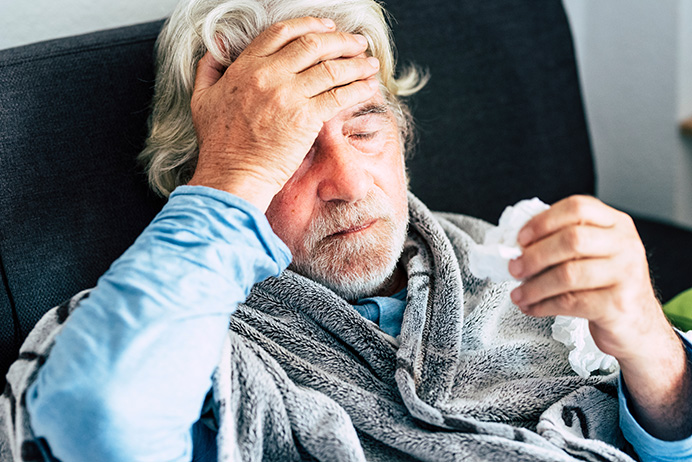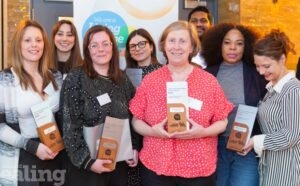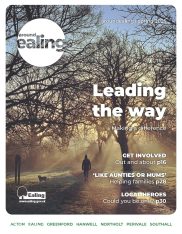Viruses love the colder months of winter. It helps them to thrive. So, you need to be extra careful to protect yourself and each other from the twin threats of flu and COVID-19.
And, if you are unwell with something entirely different, do not let it get worse. As you will see here, the NHS is still open to all.
BEATING THE CORONAVIRUS
It is important that all residents continue to follow the government’s coronavirus social distancing rules.
Prevent the spread and stay healthy:
- Maintain social distancing (ideally two metres) when outside
- Limit time spent in crowded places
- Wear a face covering
- Wash your hands regularly with soap and water (or use hand gel sanitiser)
- ‘Catch it, bin it, kill it’ – carry tissues and use them
- Download the NHS test and trace app for your mobile phone
- Stay at home as soon as anyone in the household has symptoms
- If you have any symptoms of coronavirus (a new continuous cough, a high temperature, or a loss of/change in taste or smell) you must also apply to get tested immediately.
Councillor Binda Rai, Ealing Council’s cabinet member for health and adults’ services, said: “Winter is likely to be the most difficult period of this awful coronavirus pandemic. It could be a tough few months. We all need to do our bit to help prevent the spread, save lives and protect the NHS from becoming overwhelmed.”
NOT JUST COVID
If you are not feeling well, seek help. The NHS is still open for non-COVID illnesses, too:
- Call your GP. If you are feeling unwell or have symptoms of any illnesses that you are worried about, your GP practice is still there for you. GPs are now offering telephone, online and video consultations so that you can easily access the right help and advice without having to travel. If medically required, face to face appointments are being provided. Whatever your concerns, do not wait until it gets worse, call your GP practice. You can watch an NHS video about online consultations
- Contact NHS111. If you are worried about an urgent medical concern contact NHS111 either online using its website or by dialling 111 on your phone. Doctors, nurses, paramedics and fully trained advisors are available 24 hours a day, 365 days a year. You can ask questions about your symptoms and find out when and where to get help. If medically necessary, NHS111 can make direct appointments with a variety of health services, including your GP, Urgent Treatment Centres, A&E, specialised mental health crisis services, dental services and pharmacists for urgent repeat prescriptions and advice. If needed, they can also arrange for an ambulance to be sent to you
- Speak to a pharmacist. If you have a minor health problem, the fastest way to get advice is to visit your local pharmacist. Pharmacists are highly trained medical professionals who can help with a wide range of issues – from stomach bugs, to coughs and colds and minor injuries like strains and sprains. You can also find out more about treating minor health conditions on the NHS website
- In an emergency. If you have a serious or life threatening medical emergency, call 999 or go to accident and emergency (A&E).
FLU VACCINATIONS
This year, it is especially important to get the flu vaccine. Those people who are most exposed to COVID-19, or who are most vulnerable to its effects, are also most at risk from the flu. And the flu vaccine is available free of charge to these people.
If you get flu and coronavirus at the same time, research shows you are more likely to be seriously ill. By protecting yourself against flu, it will help to reduce pressure on the NHS and social care staff who may be dealing with coronavirus.
The first phase of people encouraged to receive the free flu vaccine include: Pregnant women; children between two and 11 years old; a member of a shielding household; those aged 65 and above; frontline health and social care workers; and those with certain long-term health conditions.
A second phase is to offer vaccines to all other 50-64 year-olds. Keep a look out for updates from your local GP or NHS.
Visit the flu vaccine page on the NHS website for more information.
STRUGGLING TO STAY WARM?
The council’s Healthy Homes Ealing service offers free advice on 0800 083 2265 (Monday-Friday, 9am-5.30pm), or visit the Healthy Homes Ealing web pages for more information.
MENTAL HEALTH
It is important not to neglect our mental health, especially during these stressful and unusual times. Find out more in our article on mental health during lockdown.






